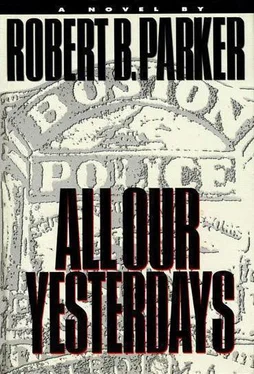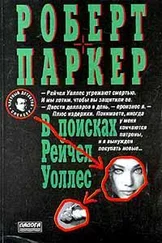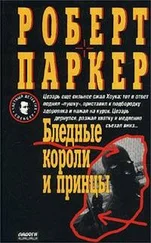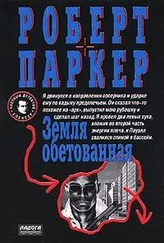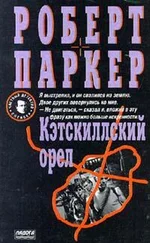“And you didn’t learn to love him?”
“No. Everyone told me I would. But I didn’t. Does anyone?”
Gus shook his head.
“I guess he matters to me. But he’s very remote. We’ve gotten used to each other. I’ve lived with him most of my life. We’ve had children. He was not unkind. He never withheld money. We had barely enough sex to conceive the children” — she smiled sadly — “under cover of darkness. And beyond that, we were partners at dinner parties and doubles matches. We had twin beds and separate dressing rooms, and Tom was out more than he was in... in all senses. I don’t really know him very well. He loves Cabot, I think. He seemed very far away from Grace... He’s remote.”
Gus was quiet.
“What are you thinking?” Laura said.
Gus remained quiet another moment, then he smiled at her.
“Enough with the love talk,” he said. “Into the bed.”
The house was right where his father’s report said it was, the forty-year-old typescript looking somehow antique in the age of word processors. They weren’t even his father’s words really, just the cumbersome locutions of policeman speak. Only the signature, C. B. Sheridan, with the big flourished S , made him think of the man who wrote it. Conn was a long time dead.
“A fine mess you left for me, Pa,” Gus said aloud as he tried the gate and found it fastened with a chain.
He went back to his car and got out a bolt cutter and returned to the gate and cut the chain. He opened the gate, put the bolt cutter back in his trunk, got back in his car, and drove up the dirt driveway under the overhanging foliage, across the little bridge, and parked in front of the house.
The sun filtered through the thick green overlay of untrimmed shrubs. The damp smell of the slow brook mixed with the smell of weeds and late summer heat. A trumpet vine as thick as a python coiled up the front porch pillars and hung oppressively over the front door. The door was locked. Gus knocked. There was no response. Gus went back down to his car and got a flat prybar from the trunk. He went slowly back up the steps onto the front porch, inserted one end between the door and the jamb, level with the dead bolt, and jimmied the door open.
The living room was messy, with soft-drink cans and movie magazines and stuffed animals scattered about. On the living room floor, near a door in the left-hand wall, was a long-dark smear. He went and squatted on his heels and looked at it. He didn’t touch it. Then he stood and walked through the door in the left wall. It was a bedroom. There was another dark smear on the floor. The bed was unmade and a wide dark brown stain blotched the sheets and one of the pillows. The stain had leeched a little way into the other pillow. Gus picked up the badly stained pillow and looked at it carefully. Then he put it aside and looked at the mattress where the stain had soaked through. He felt around on the surface of the mattress and found a hole. He hoisted the mattress and felt underneath it. There was no exit hole. He dropped the mattress and took a Buck knife out of the small case on the back of his belt and cut into the mattress. When he had cut a big enough opening, he put his hand in, and felt around, and came out with a distorted lead fragment that no longer looked like a bullet, having been misshaped by its passage. He took a small plastic sandwich bag out of his pocket and dropped the slug into it and sealed the bag by pressing the blue line into the yellow line until it looked green.
Gus went slowly though the rest of the house, looking at the children’s clothes: the baby doll pajamas, and little girl’s underwear; romance magazines, and comic books, and stuffed animals. He went back into the bedroom and stared down at the stained bed.
“Tommy, you are a weird son of a bitch,” he said aloud. “And I let you walk around loose.”
Then he turned and went out of the little house and got back in his car. At the foot of the driveway, he closed the gate and readjusted the chain so that the cut link didn’t show.
Then he drove back to Boston.
The sun poured into the mayor’s office through the windows that overlooked Quincy Market. Mary Alice sat quietly on the other side of his desk while Flaherty talked on the phone.
“Lose it,” Flaherty said into the phone. “I don’t give a fuck what you do, get this office and my campaign separated from the fucking thing.”
He hung up the phone and turned toward her.
“Autopsy report says that young girl they found last week in Brighton — she’d had sexual intercourse. Probably with an adult. And probably had been having intercourse for some time.”
Mary Alice winced.
“How old?”
“Coroner’s guessing thirteen.”
“God.”
“Even the fucking pederasts are trying to screw up my election,” Flaherty said.
“Everything happens to me,” Mary Alice said.
“What?”
“Just the punch line to an old joke,” Mary Alice said.
“Yeah, well, your fucking boyfriend has no leads, he says. He ain’t solving shit. And neither is his fucking kid.”
“Parnell. Chris’s not even on the case. He’s your “Yeah, and has he solved one?”
Mary Alice sighed and didn’t answer.
“He was your idea, don’t forget,” Flaherty said.
“How could I forget? You keep reminding me.”
Flaherty got up and took his stance in front of the window, looking down on Quincy Market with his hands clasped behind his back.
“You’re a smart broad, Mary Alice. And you give excellent head...”
“Everybody tells me that,” Mary Alice said.
“... but sometimes I can’t figure you out. Why did you get me involved with your boyfriend’s son.”
He turned slowly from the window, his hands still behind his back, and stared at her, his thought half completed.
“And having done that, and still, as far as I know fucking his father, why are you now fucking me?”
“Girl’s got to look out for herself,” Mary Alice said.
He gave her his riveting gaze, the one he used on his campaign posters.
“No bullshit, Mary Alice. I want to know.”
“Because you want to know, Parnell,” Mary Alice said, “it does not necessarily follow that I have to tell you.”
Flaherty held his look for another moment and then laughed.
“Hey,” he said, “Mary Alice, I’m the fucking mayor. You’re supposed to do what I say.”
“Professionally,” Mary Alice said.
“I’m not sure you do anything, except professionally.”
“Meaning?”
“Meaning you are a career oriented broad,” Flaherty said. “And you consider the career implications of everything you do, dressed or undressed.”
“I’m a single woman,” Mary Alice said. “I’ve been a single woman a long time, long enough to know that nobody’s going to gallop up on a white horse and rescue me.”
“You were married.”
“Yeah, to the back end of the horse.”
Flaherty grinned.
“And you latched onto Gus,” he said.
“Not right away. Gus does not have a happy marriage. I was divorced. We latched onto each other.”
“He pays your rent,” Flaherty said.
“How would you know that?”
“I like to keep up with things.”
“He’s gotten as much out of the deal as I have.”
“You love him?”
Mary Alice shrugged.
“I like him, at least,” she said.
“He straight?” Flaherty said.
Again Mary Alice shrugged.
“I don’t know,” she said. “He seems to have a lot of money for a policeman, but... he doesn’t say much.”
“That’s for goddamned sure,” Flaherty said.
“He loves his son,” Mary Alice said.
Читать дальше
